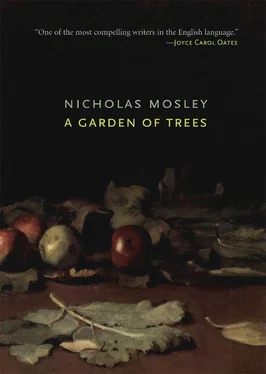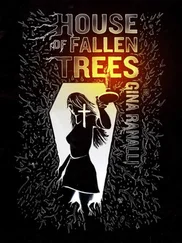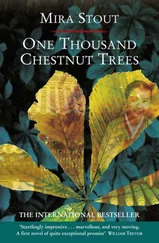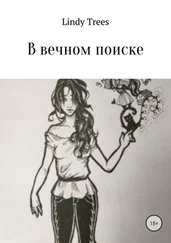“Did ‘e ‘it yer Charlie?” the attendant said. “Did ‘e ‘it yer on the nose?”
“Good heavens no,” Peter said, backing away nervously.
“This is a convenience,” shouted the attendant. “A respectable convenience!”
“I’m sure it is,” Peter said, stumbling over a mop and pail.
“Wot’s up?” yelled the attendant, putting his mouth about an inch from Charlie’s ear. “Wot’s up with yer face, Charlie?”
Charlie muttered into an enormous brown handkerchief that he had produced from his pocket and was now holding clasped upon his nose.
“The bar slipped,” I explained. “It slipped and scraped his nose.”
“It did, did it?” yelled the attendant. “Slipped and scraped his nose, did it, slipped and scraped his nose?” He repeated this at the top of his voice.
“That’s right,” Peter said, but was unable to make himself heard.
“I’ll give yer slip and scrape yer nose,” reiterated the attendant.
Just then Charlie removed his bloodstained handkerchief from his face and uttered another great bellow. Peter was walking round him patting him anxiously on the back, but the attendant sprang forwards and this time really let himself go. “ ‘Ush it up, Charlie,” he roared: “For Christ’s sake ‘ush it. We’ll ‘ave the cops down with all this bloody noise.” The sound of his voice in the enclosed space was like a landslide.
And then, as the echoes cleared, there was the sound of heavy boots descending the steps. The attendant acted with speed. He pushed the bleeding Charlie back into his cubicle, slammed the door on him, and turned to us, saying, “In you go, quick, I don’t want no trouble in this convenience.” Propelled by his whisper we made a rush for two locked doors and pushed against them futilely. “No pennies,” Peter said. “Charlie’s got the lot.” The attendant whirled us round and pushed us into a cubicle at the end which was unlocked. “Into the free,” he whispered viciously. “It’s the free that’s good enough for some.” He slammed the door on us. “And others too,” we could hear him adding, repeatedly, as the policeman or whoever it was arrived at the bottom of the steps.
I was laughing so much I couldn’t breathe. I leant against the wall and Peter pulled out a handkerchief to mop his face, but he seemed to remember Charlie’s, so he put it away again hurriedly. We could hear the policeman’s footsteps going sedately along outside, and I was holding my breath so tightly that I thought the wall would fall down. After a long pause I let my breath out quickly, and then couldn’t get it in again. Peter leant over and whispered very seriously, “I say, what’s a free?”
I couldn’t answer. I sat on the seat and wondered if I should ever get my breath back and then Peter whispered again, more loudly, “What did he mean by a free?”
I tried to speak, but after a few syllables my whisper cracked into a squeak but I was able to go on laughing. “What a wonderful idea,” Peter said. “Why doesn’t everybody come here?” He was peering round trying to read the writing on the walls. From somewhere on our right I could hear Charlie’s interminable mutter; but the sound, all steam and rumblings, seemed to be in keeping with the place. I was more concerned with my laughter, which seemed liable to explode again at any moment. Outside, the policeman was talking to the attendant: we could hear his boots creaking as if he was standing still. The attendant was putting him off cleverly, uttering high-pitched grunts of innocence. I was beginning to breathe more easily when Peter leaned over towards me again. “I say,” he said, “do you realize that it is a criminal offence for two Englishmen to be found together in a lavatory? It is the only thing the public cannot stand.” And then we were both laughing.
I don’t know how long we stayed there, but eventually the policeman went, and the attendant came to let us out. We wanted to see how Charlie was doing, but the attendant would not let us. He drove us out, heedless of our apologies. In the sunlight we felt very stupid and exhausted. As we walked away we could hear the attendant and Charlie greeting each other below the earth. The noise they made was like the beginnings of a water-spout.
Peter was meeting Annabelle for tea, and I went with him. As we walked I asked him, “Do things like that often happen to you?” and he said, “They seem to,” and after a while he added, “They do if you look for them, you know. They seem quite often to happen to me.”
And I suppose they did. Looking back on the days that I spent at this time with Peter and Annabelle and Marius, it seems that something like that was always liable to happen; wherever I went with them the expectation of an extraordinary incident followed us like a ghost, even quite normal occasions being turned by this sense of anticipation into moments of oddity. It was all happy at first, while the laughter of the ghost was a benevolent laughter. It was only later that the ghost, as if in the passing of time he had grown tired of such childishness, became malevolent. It was then, as Alice had said, that life demanded to be taken as a business. But we were all young when I first knew them, and we did not look ahead to the future.
As I walked with Peter I thought of how it seemed that whenever I was in the presence of any of them I ceased to be conscious of myself as an individual and became, for the moment, a working part of the function in which we were engaged. And it was in this guise that the feeling of myself as an individual, as apart from consciousness, became actual. Going up the street through the sunlight I existed as a movement of the passing afternoon, but the existence was a real one, an experience that demanded neither thought nor question, a certainty that was very different from the dreams and self-enquiries of my moods when I was alone. I wondered if this was what Alice had described as fun, but the function of childishness would not have been fun to her. And then there were moments when the oddity was too mysterious for laughter.
Peter led the way into a store in Regent Street, up in a lift to the restaurant where the air was warm and scented, and as I looked around me turning with the heat of the room I saw Annabelle sitting with Marius at a table for four. We went across and sat opposite them, Peter facing Marius and Annabelle facing me, and Peter began telling Marius the story of the man with the iron bars. There was a band playing wearily in the corner, and Peter’s words seemed to swim among the music like a child splashing gaily in an oily sea. Annabelle was not listening to the story, nor to the music, and as I watched her her eyes went down from Peter, down to the table-cloth which was blue and chequered and on which two knives lay, and she took one of the knives in her smaller pointed fingers and spun it, carefully, so that it flashed under the light like a catherine wheel. I was watching her hands and her wrists as they disappeared into the sleeves of her dress, and all the time she was looking downwards so that the lashes of her eyes were visible like fringes against her cheeks. Peter was saying, “A free lavatory, just think of it, a free lavatory,” and Annabelle was leaning forwards with her hair falling down over her forehead and the neck of her dress open slanting against her throat. The warm oily water of the restaurant lapped around us, and Marius was laughing at Peter as he splashed, and Annabelle and I were floating like two bubbles in the sea. As she sat I had the impression that her clothes were quite separate from her, they were drapings of a statue unveiled and alone. At the centre there was darkness, the darkness of a cave: and as the sea broke over her, as the bubbles were devoured, the openings at her wrists and throat were yet caverns which the waves dared not enter, chasms of infinity in which the swimmer might drown. I wished that all might dissolve, become one with the waters; and Peter was saying, “No, not comic, tragic: just think of the tragedy of that poor man’s nose.”
Читать дальше












